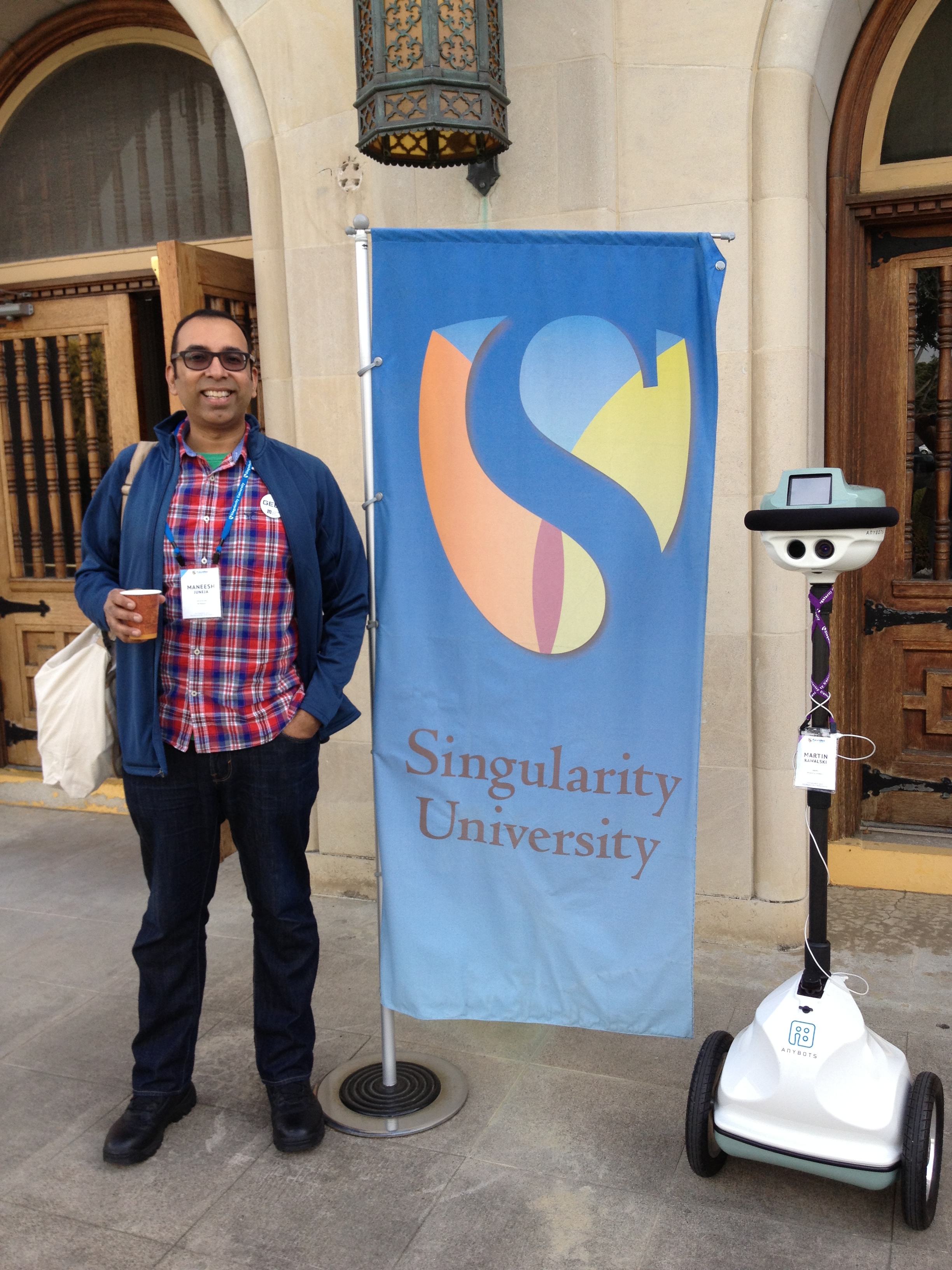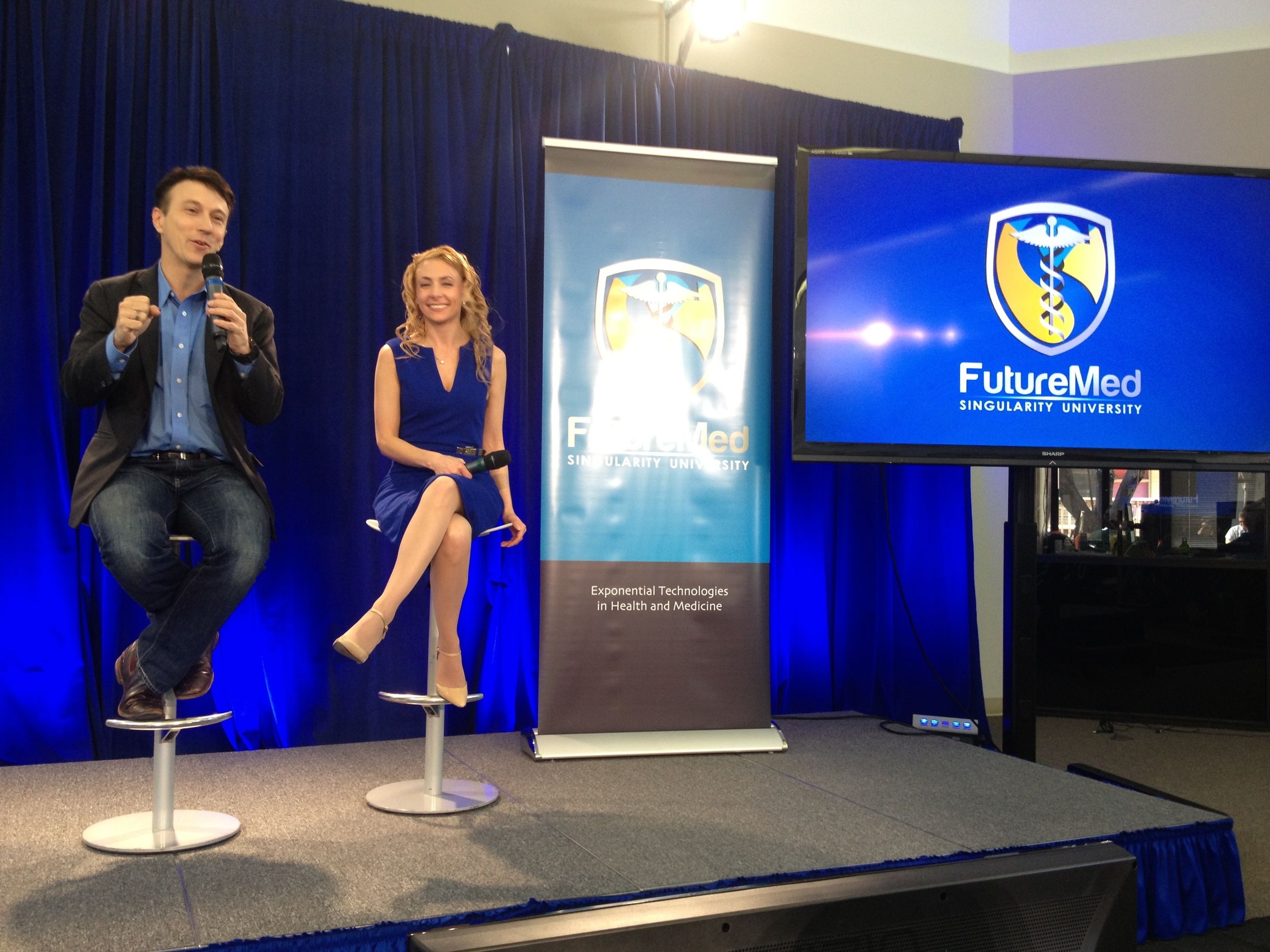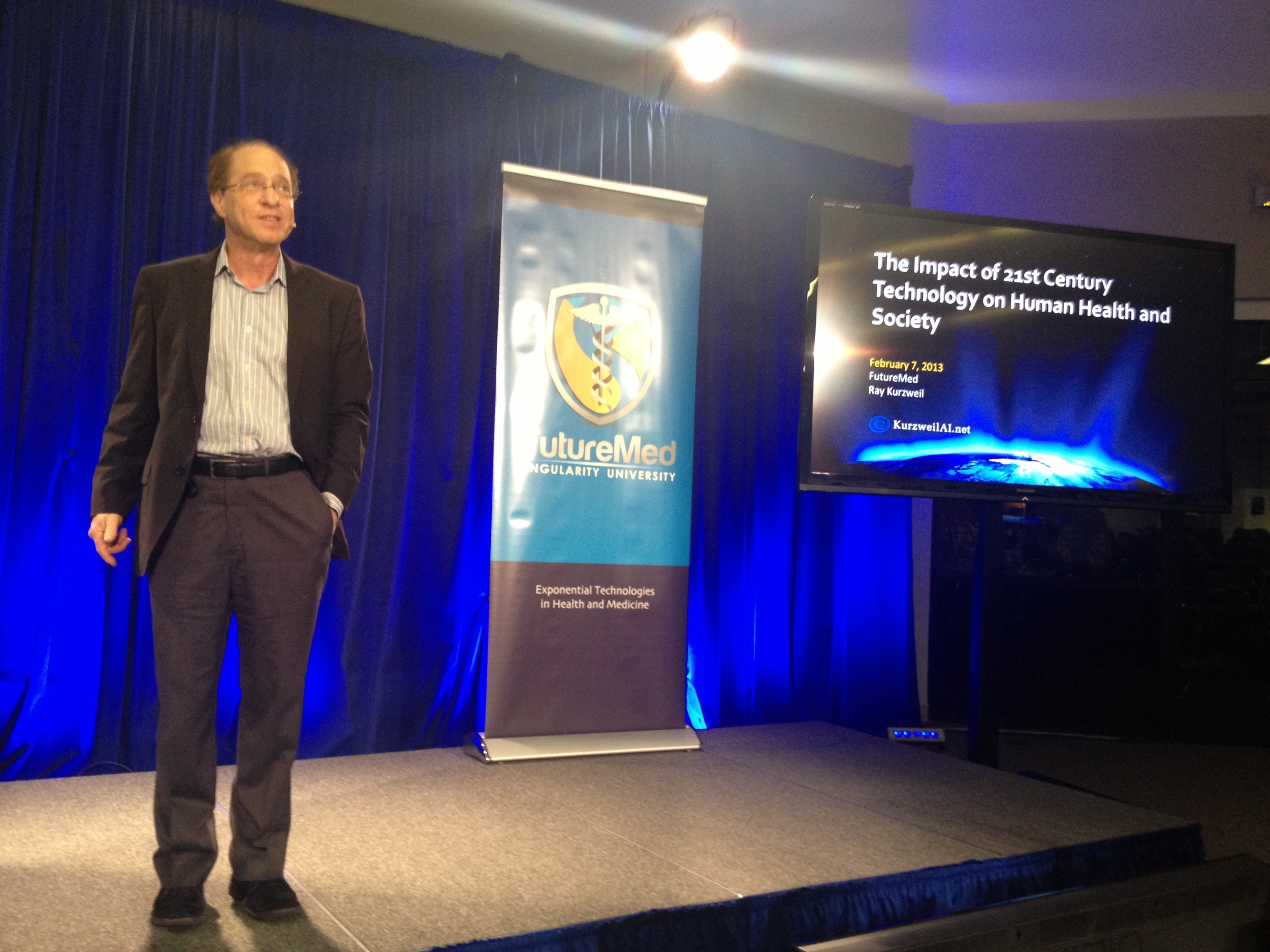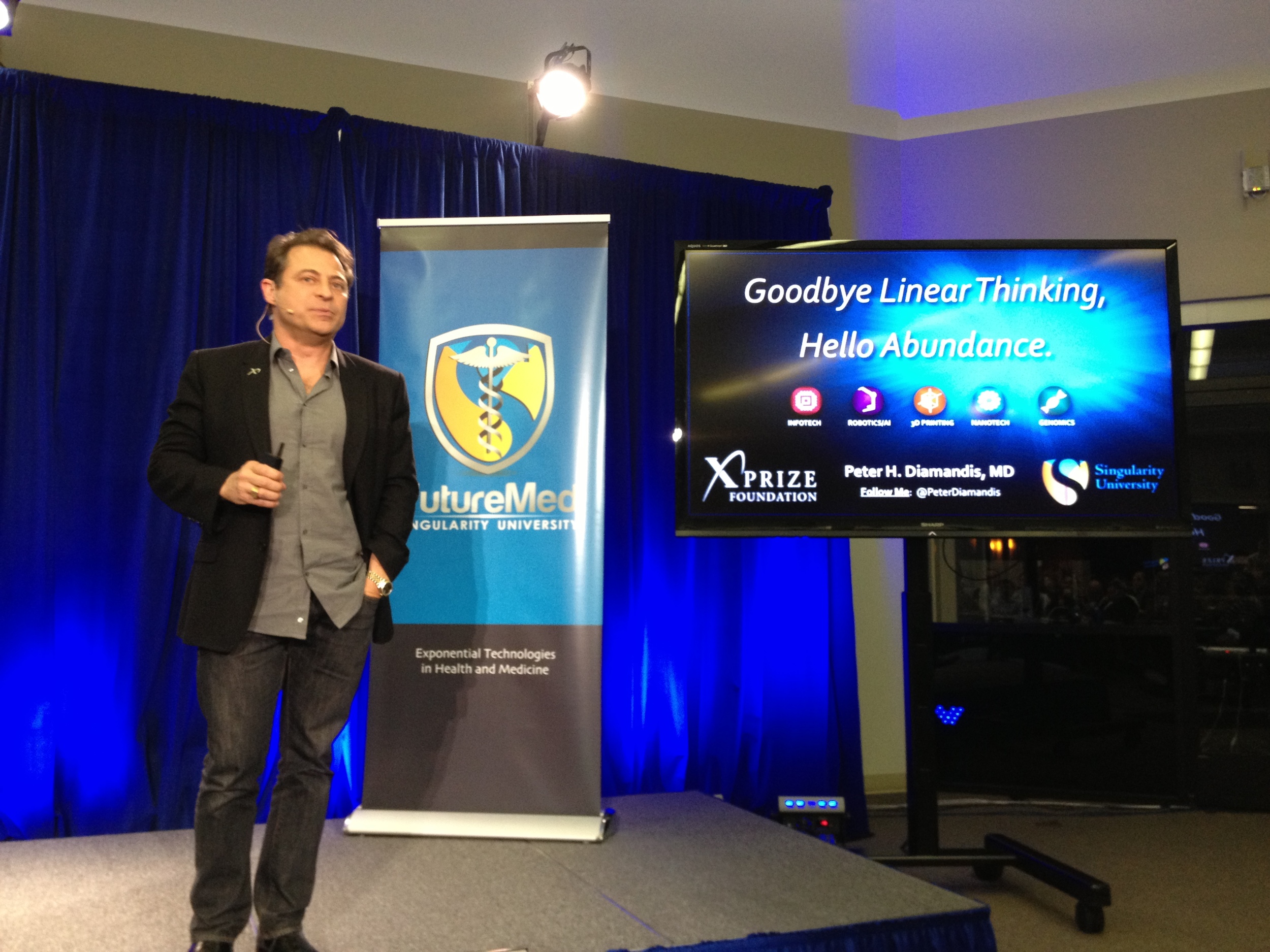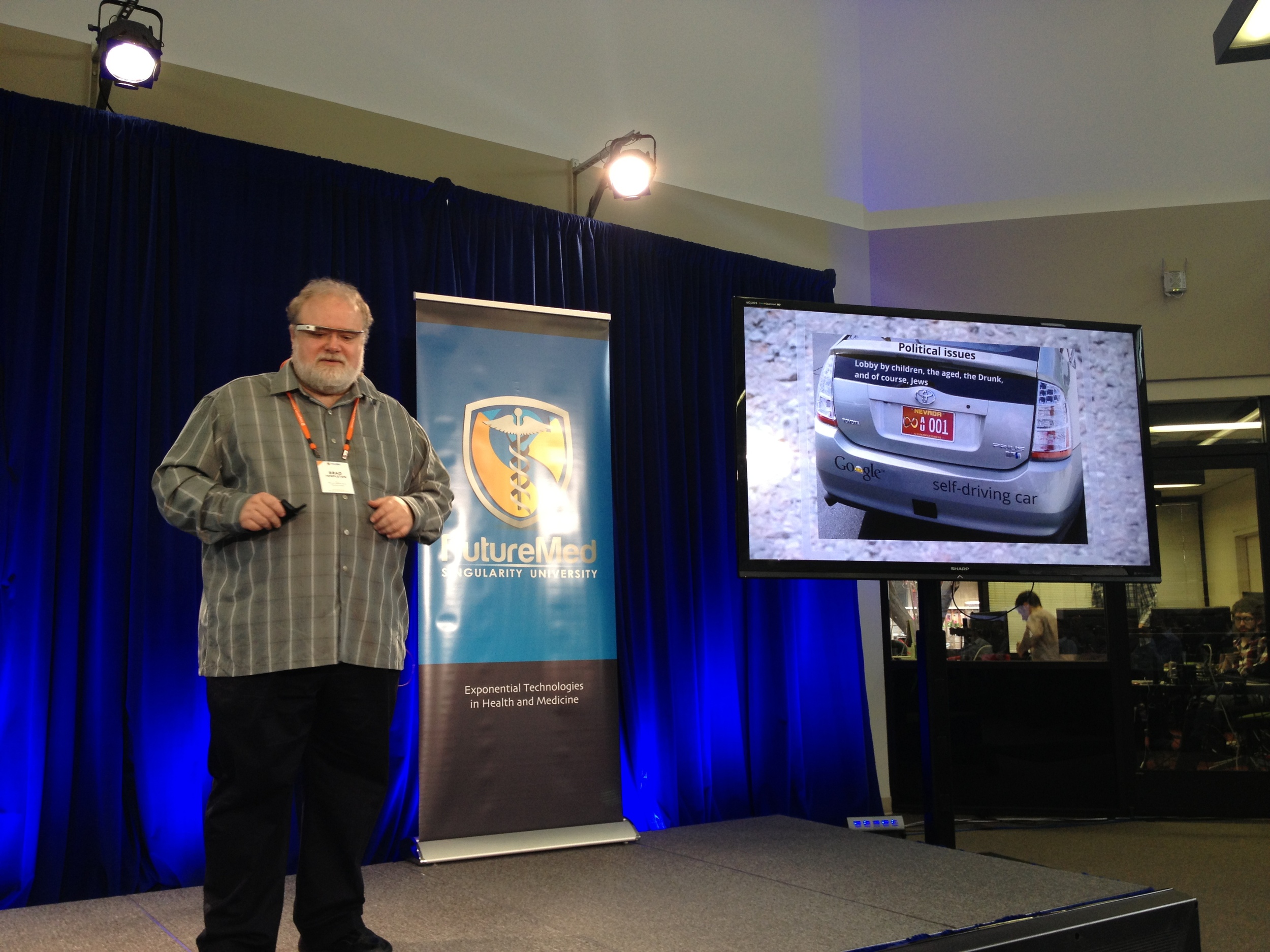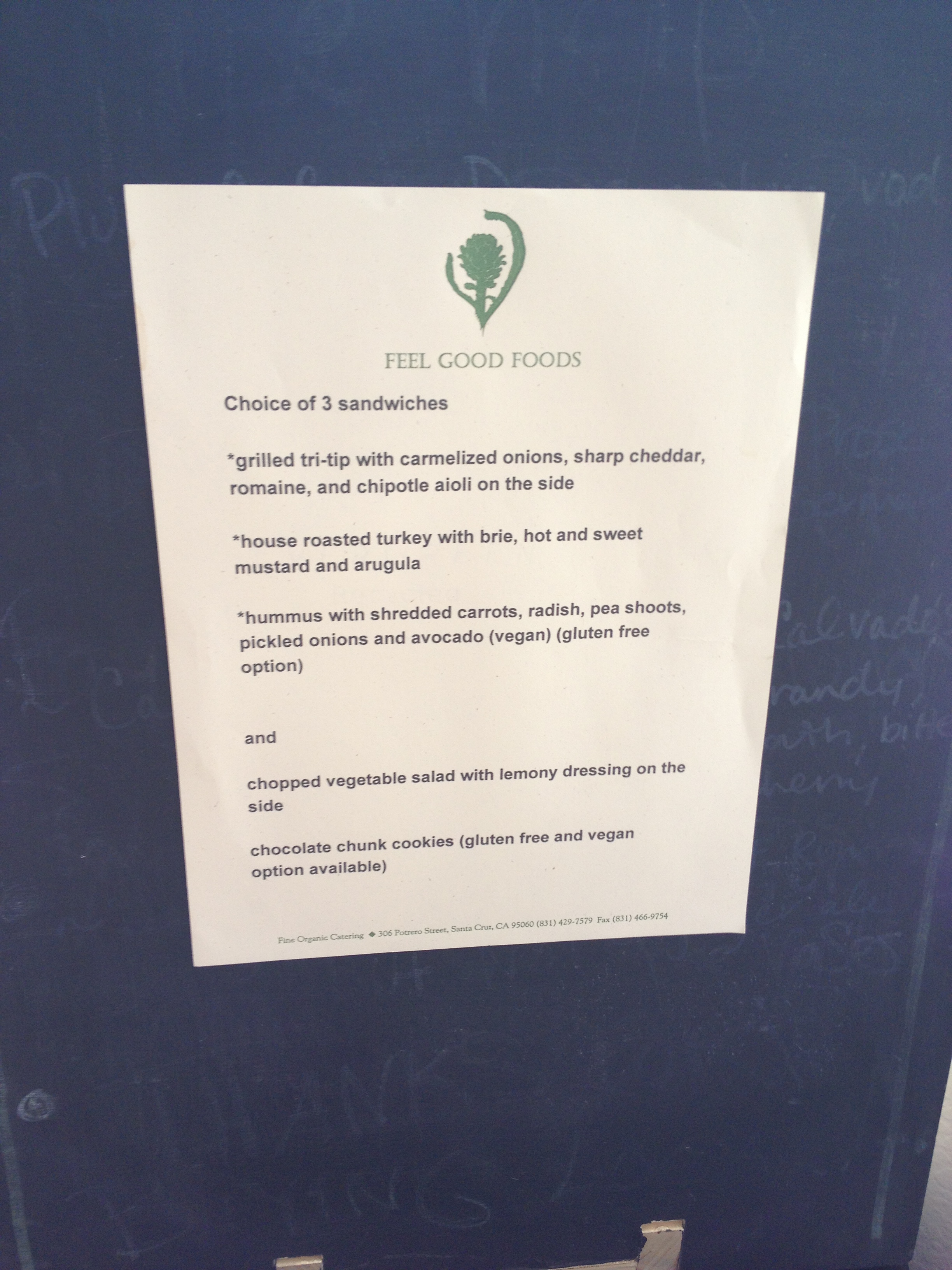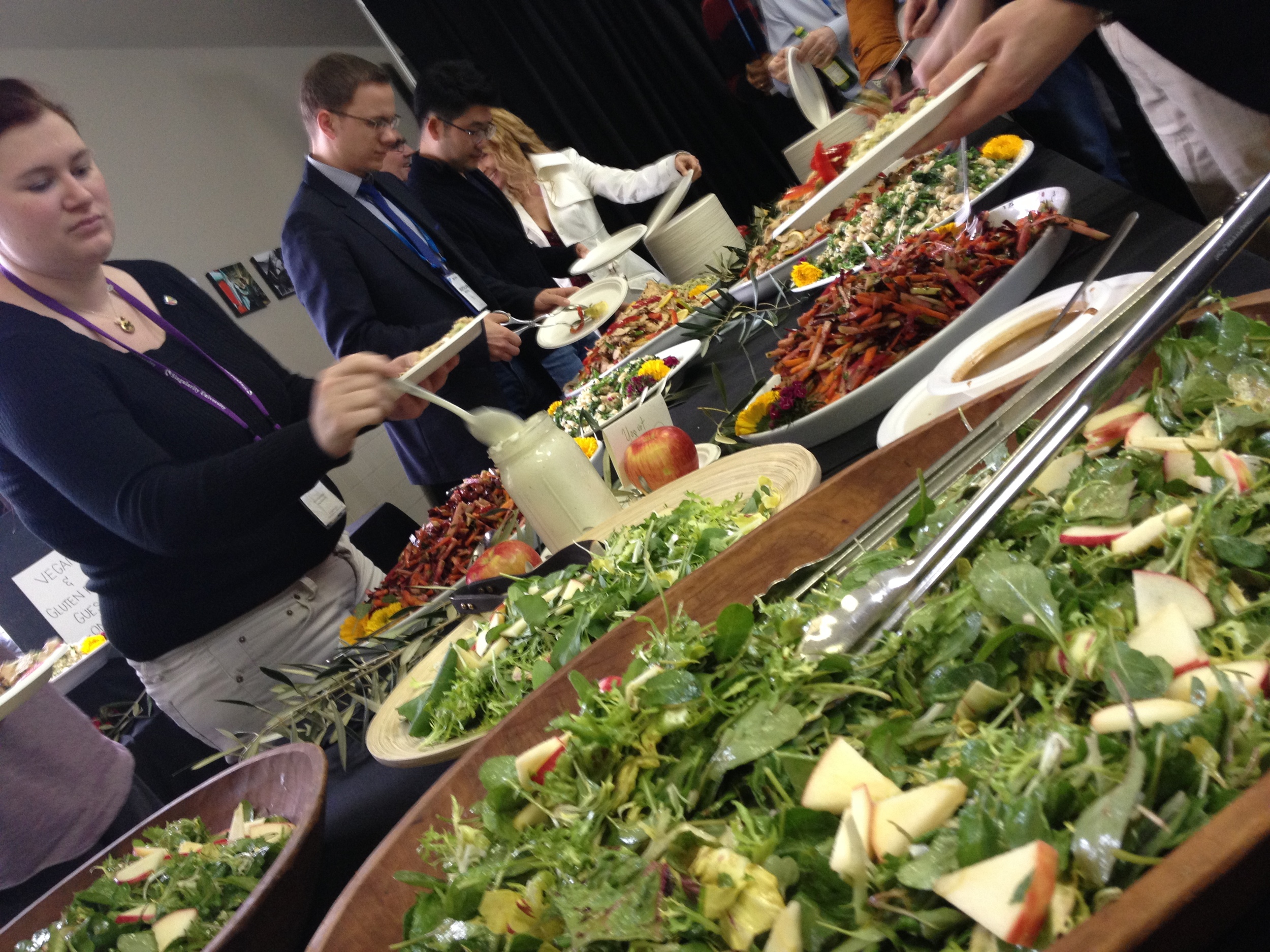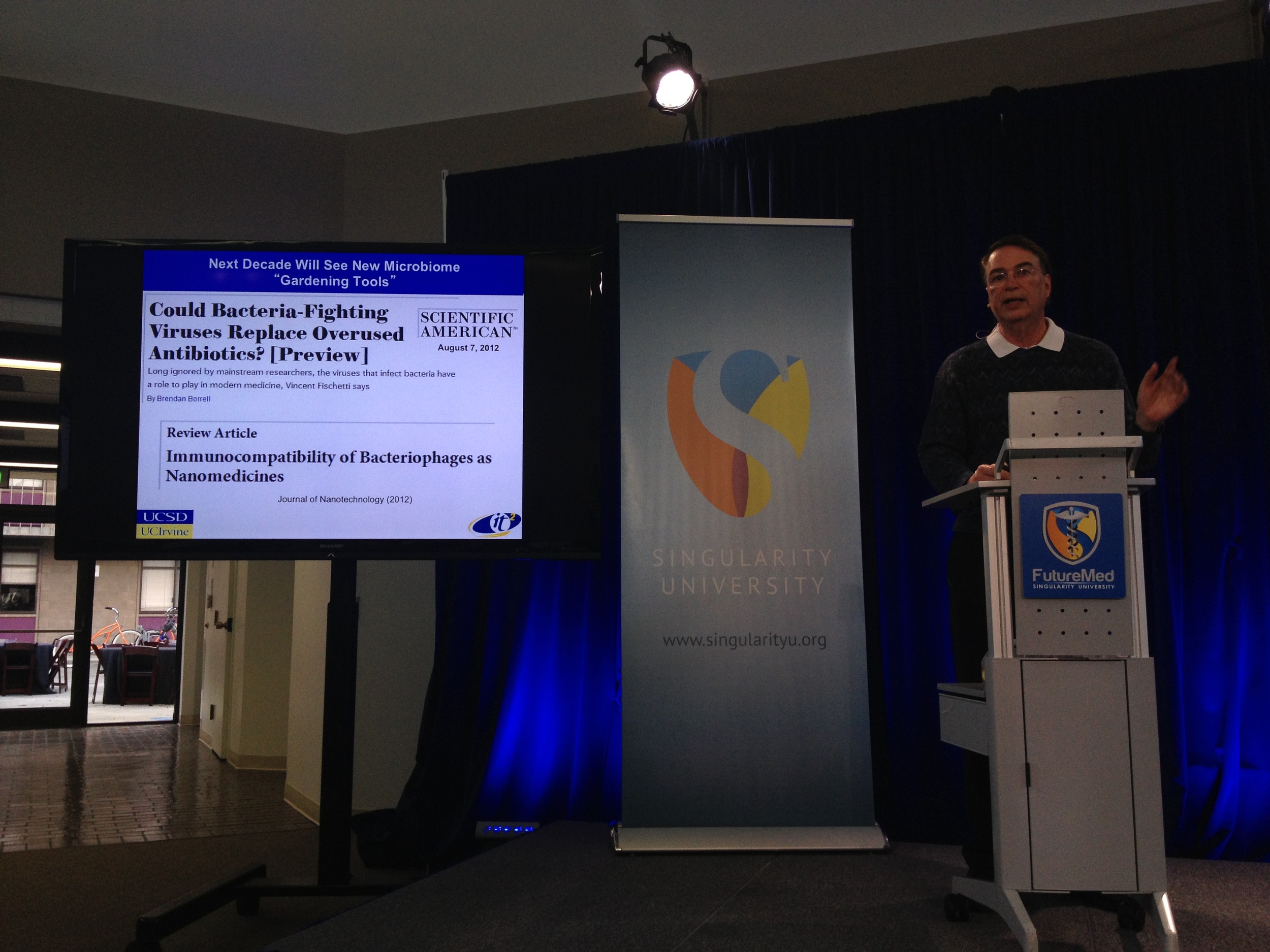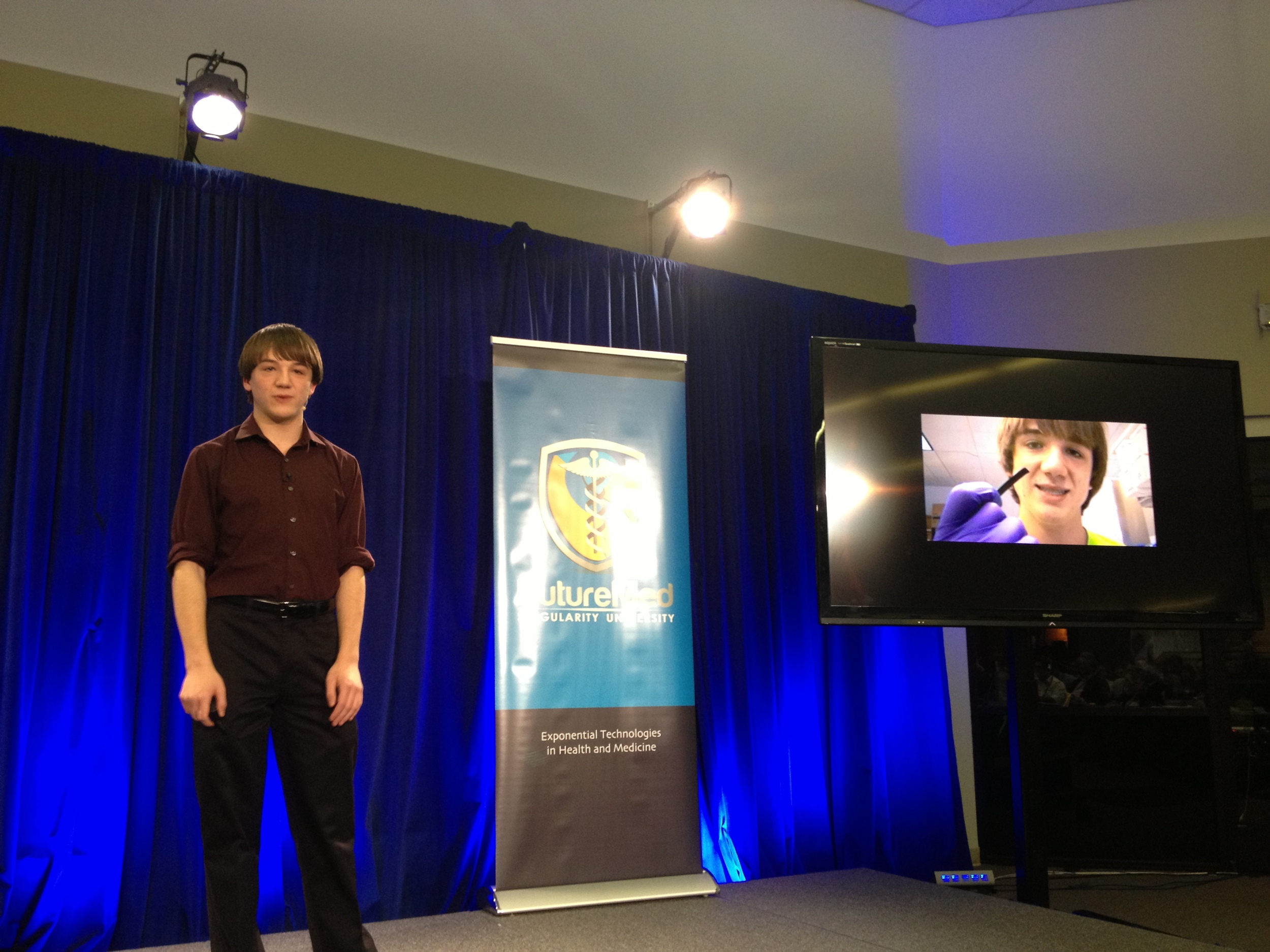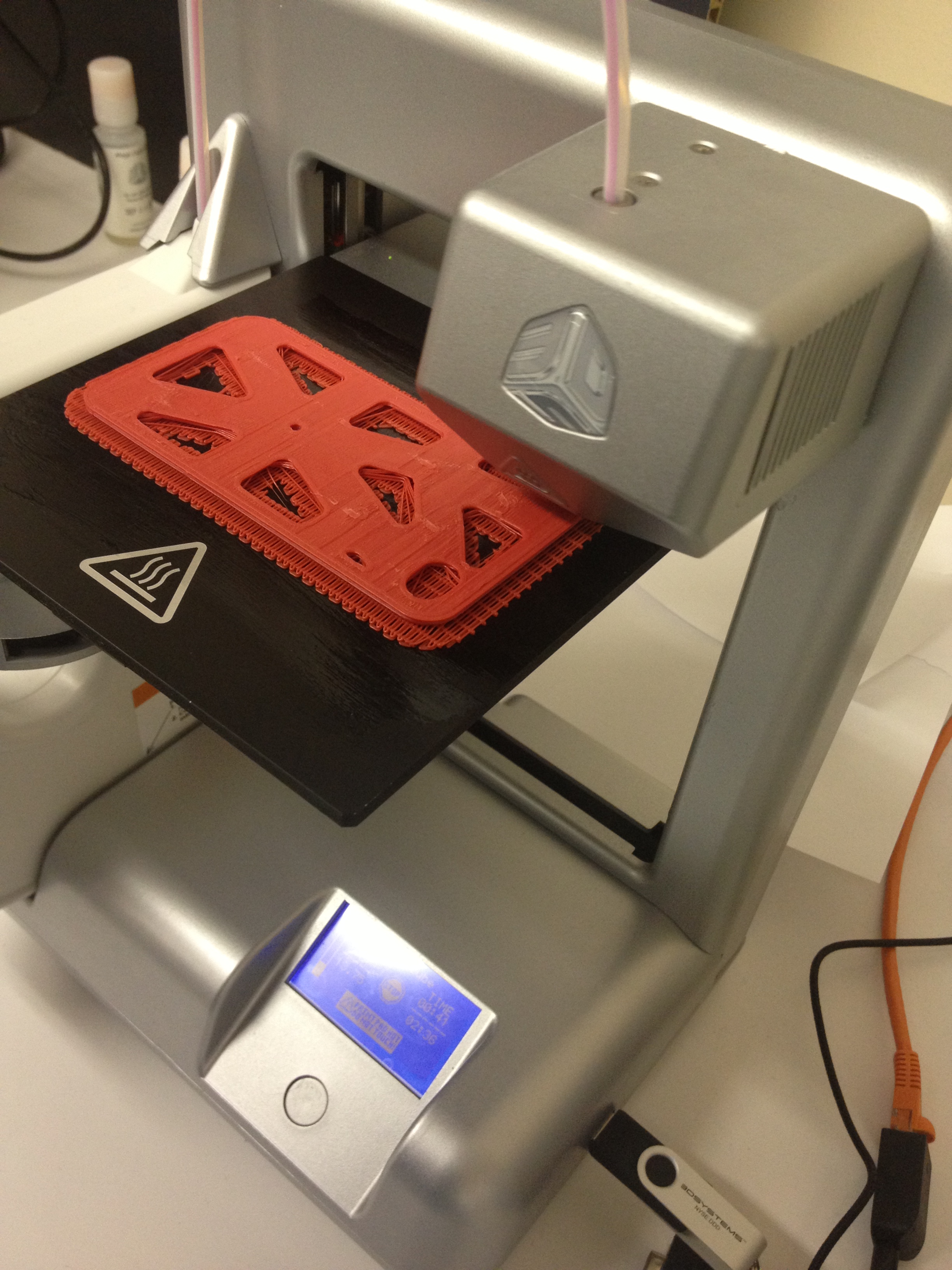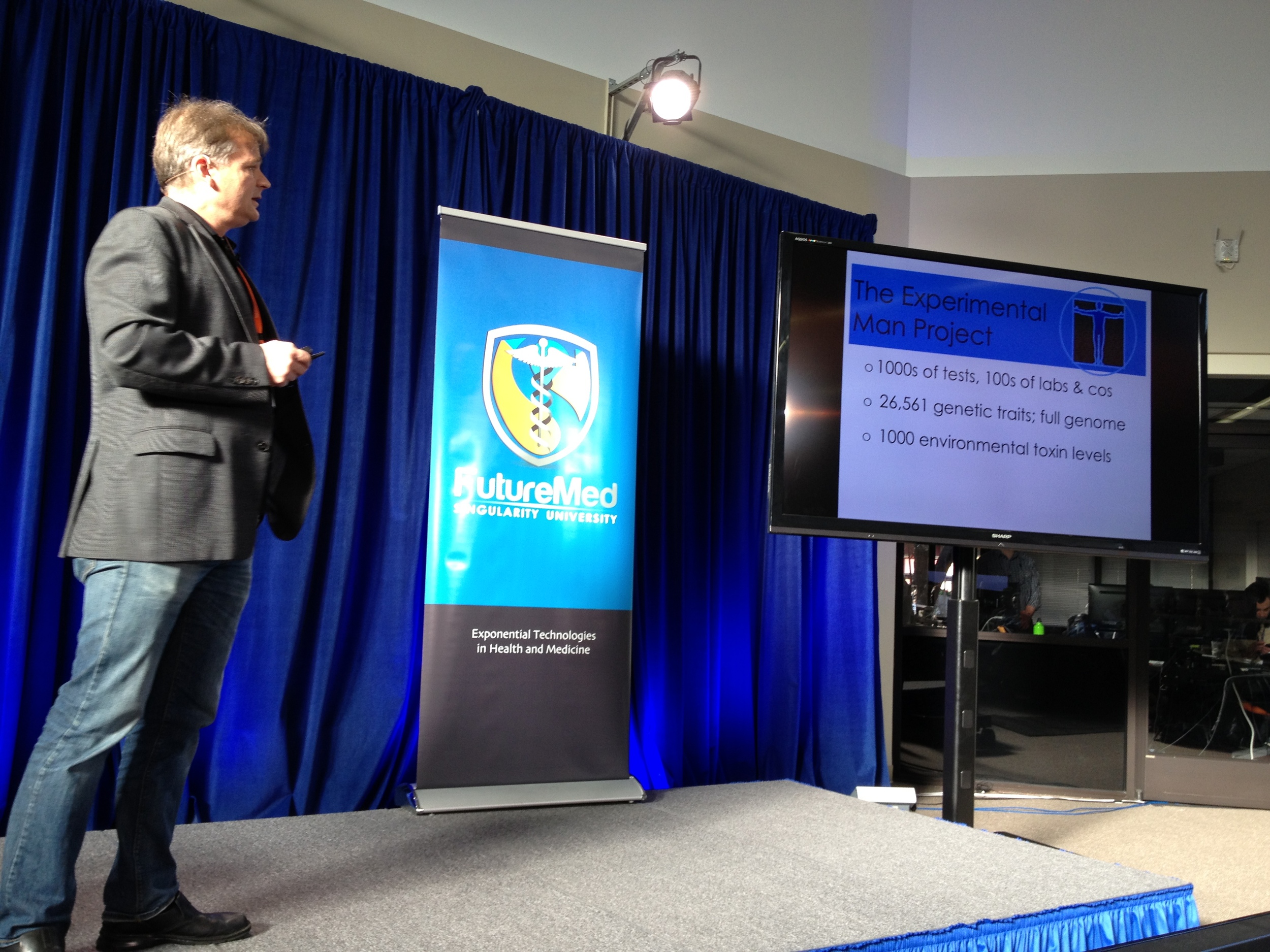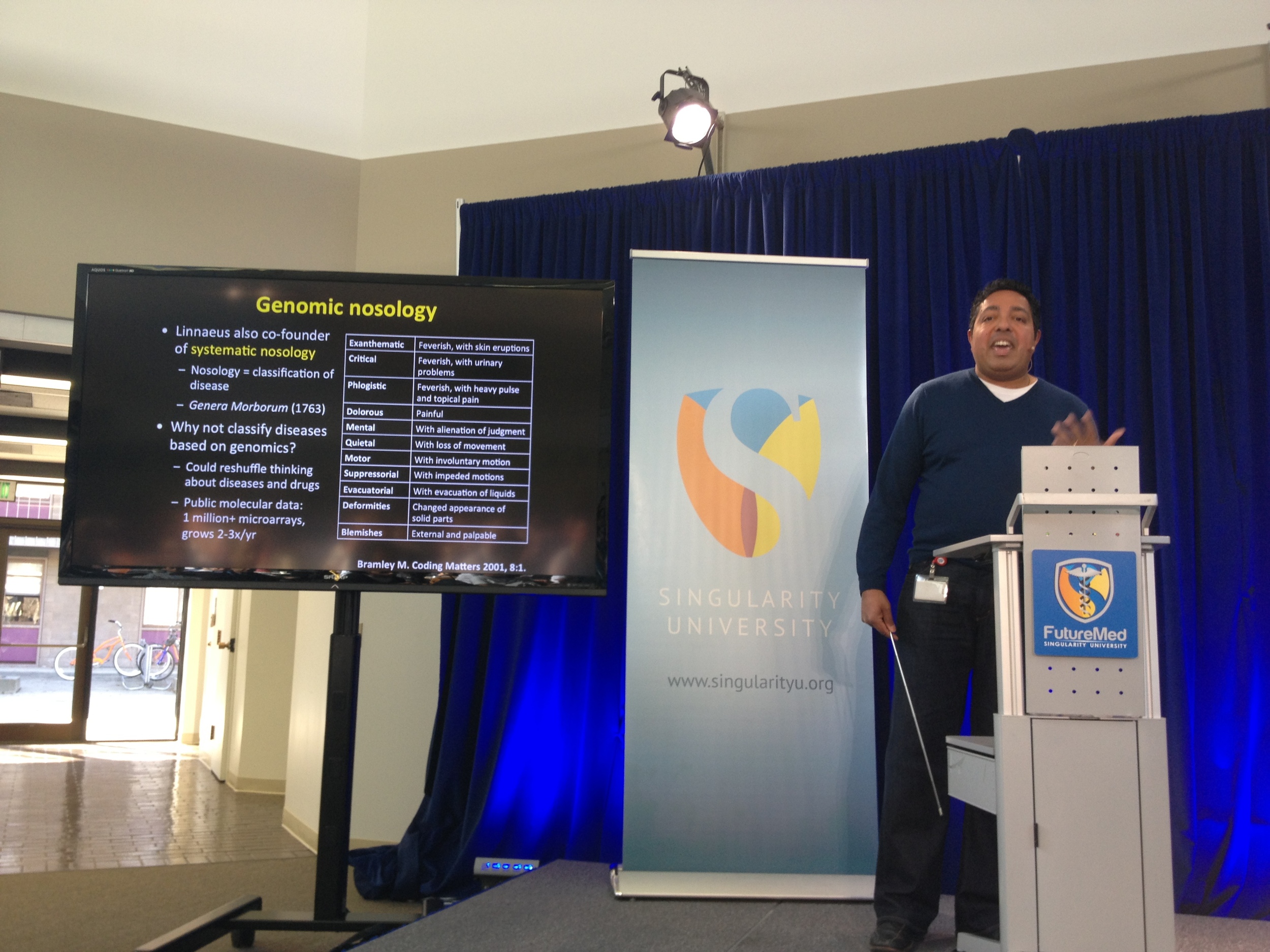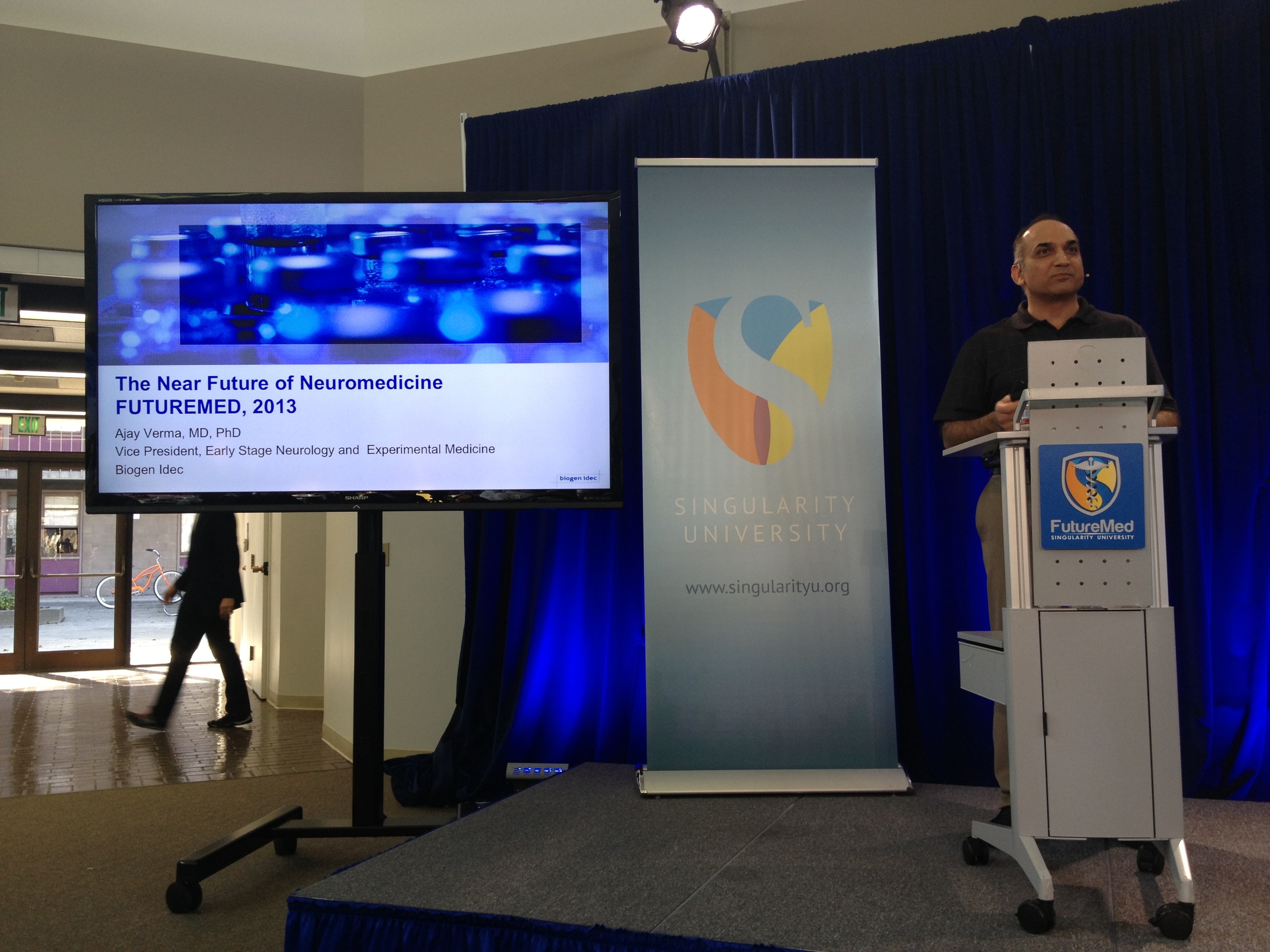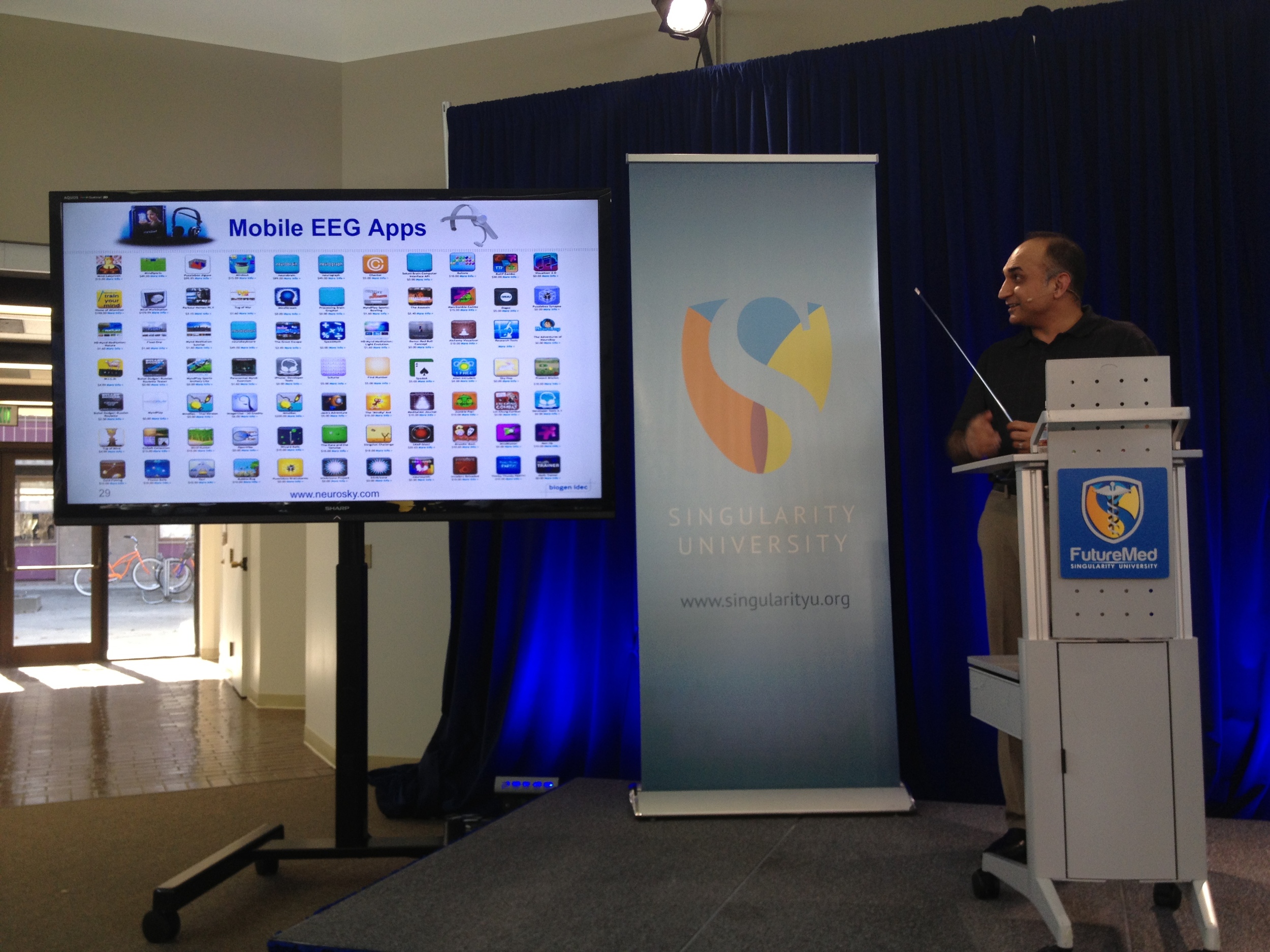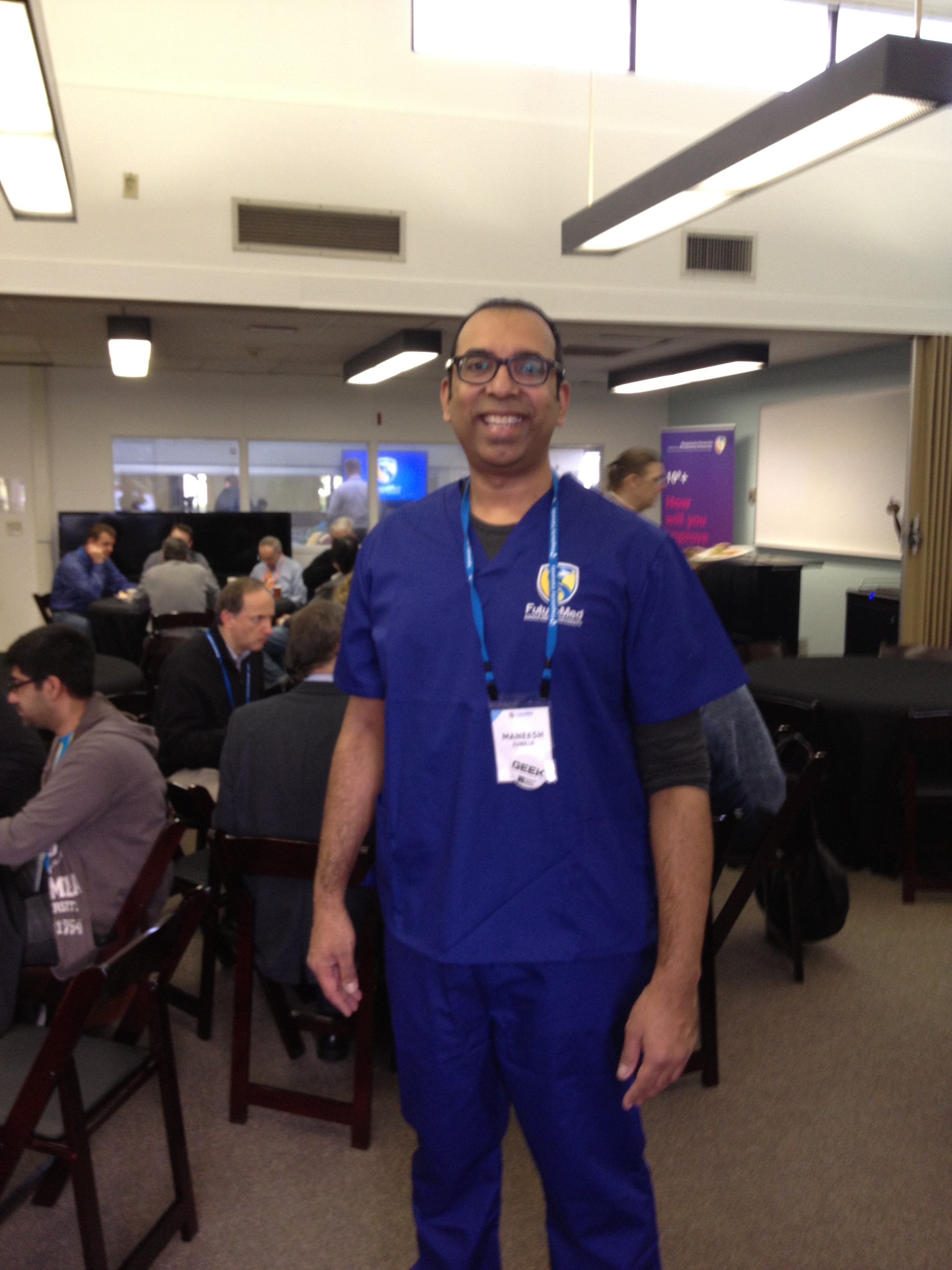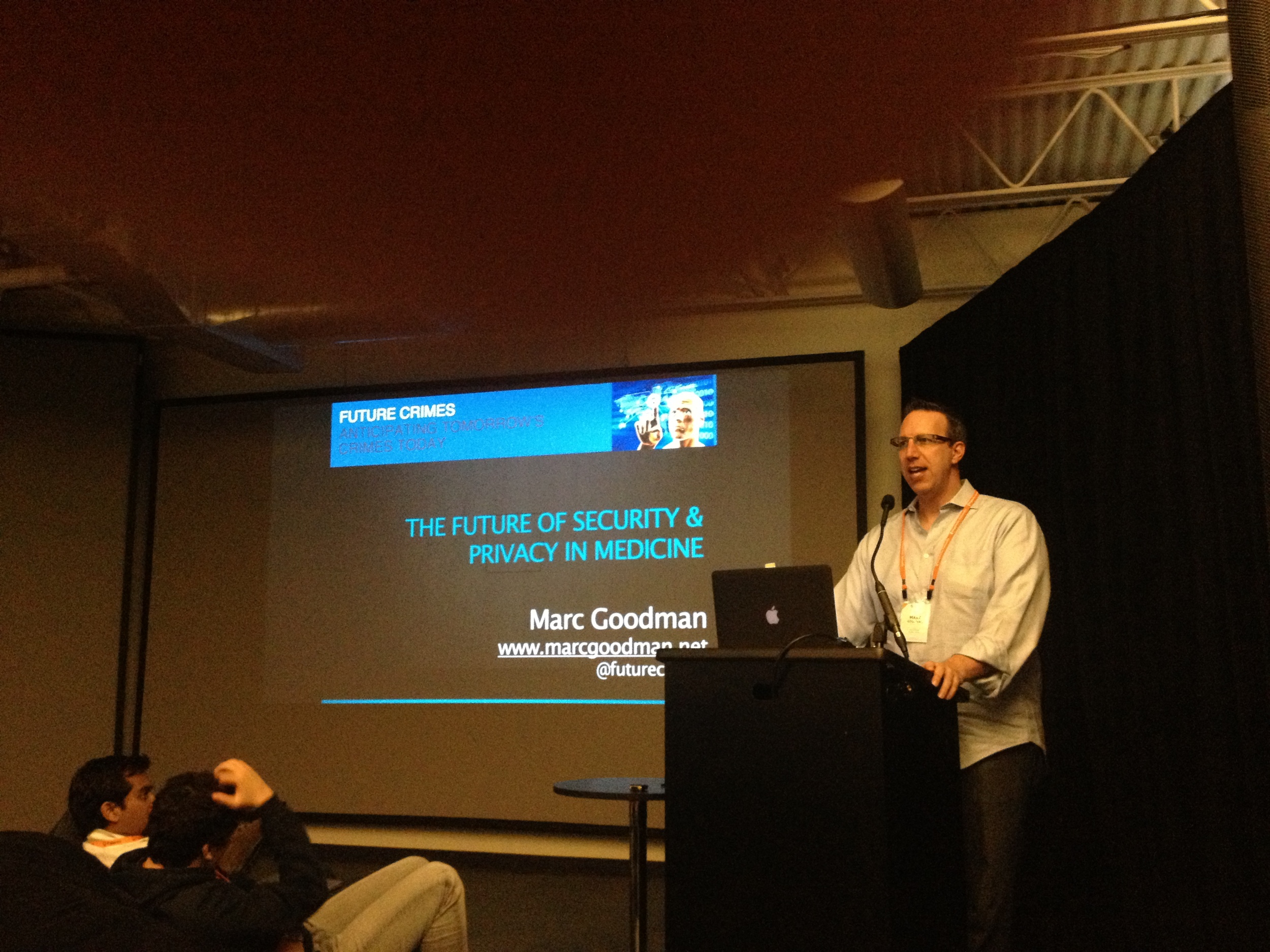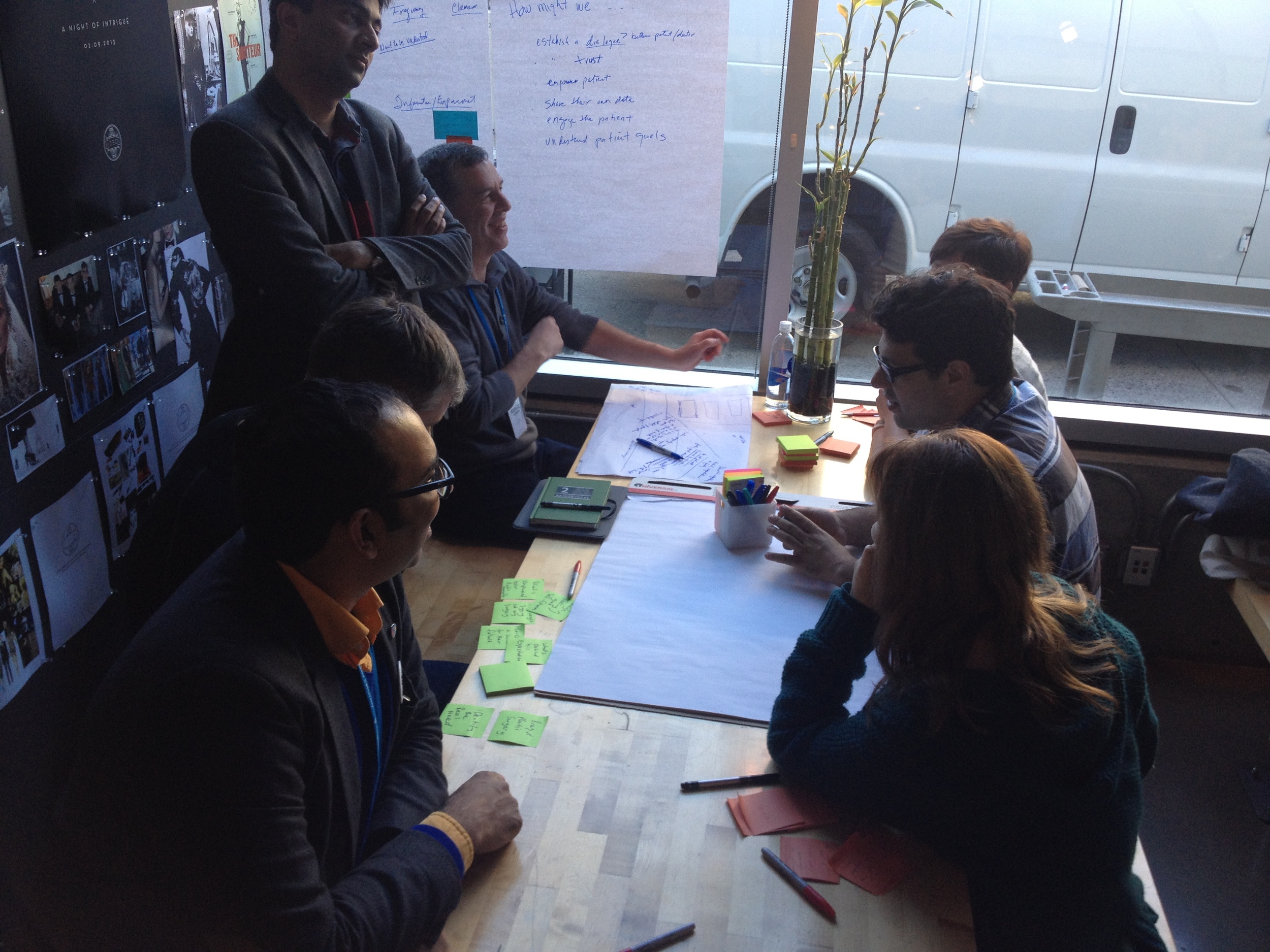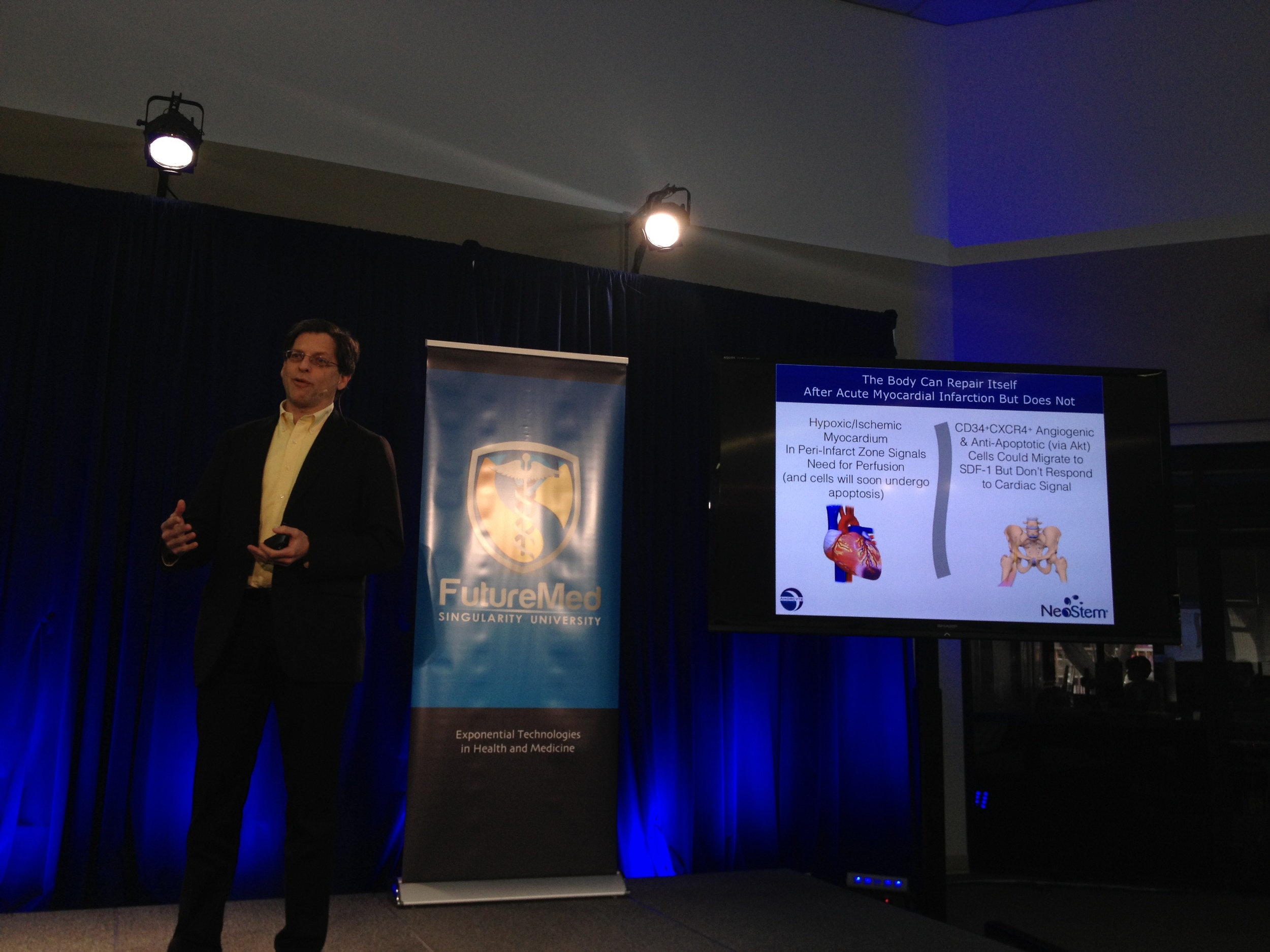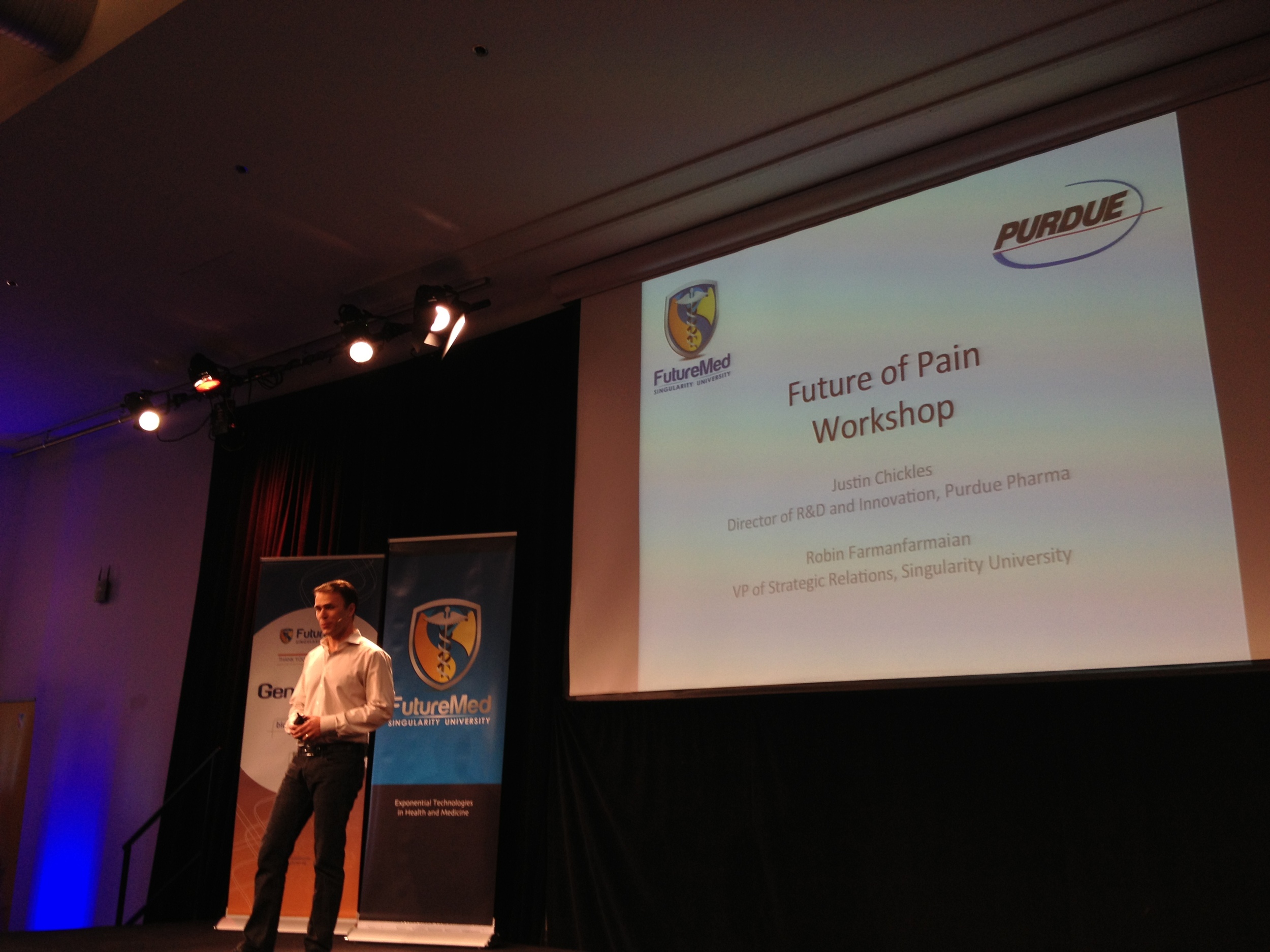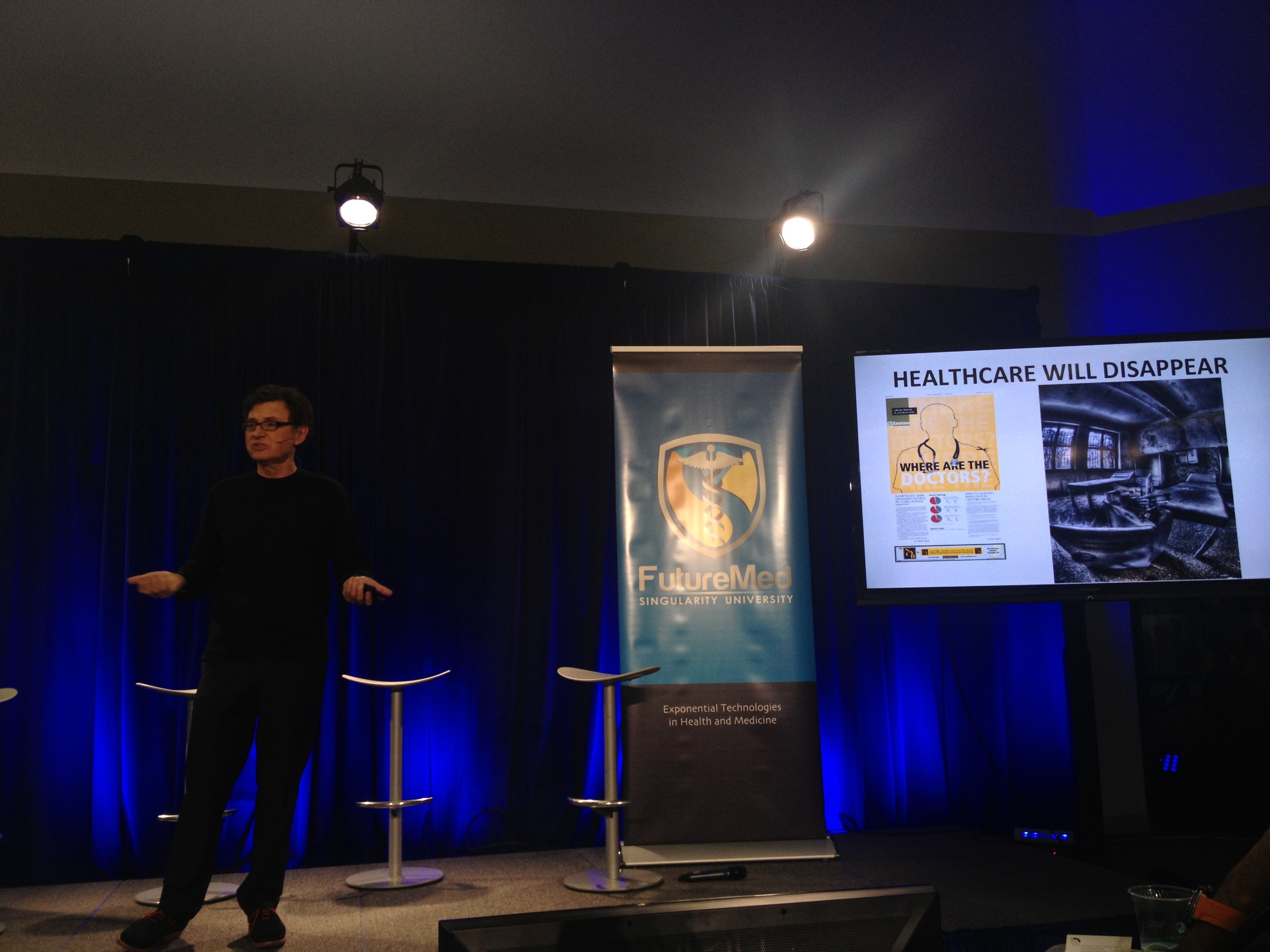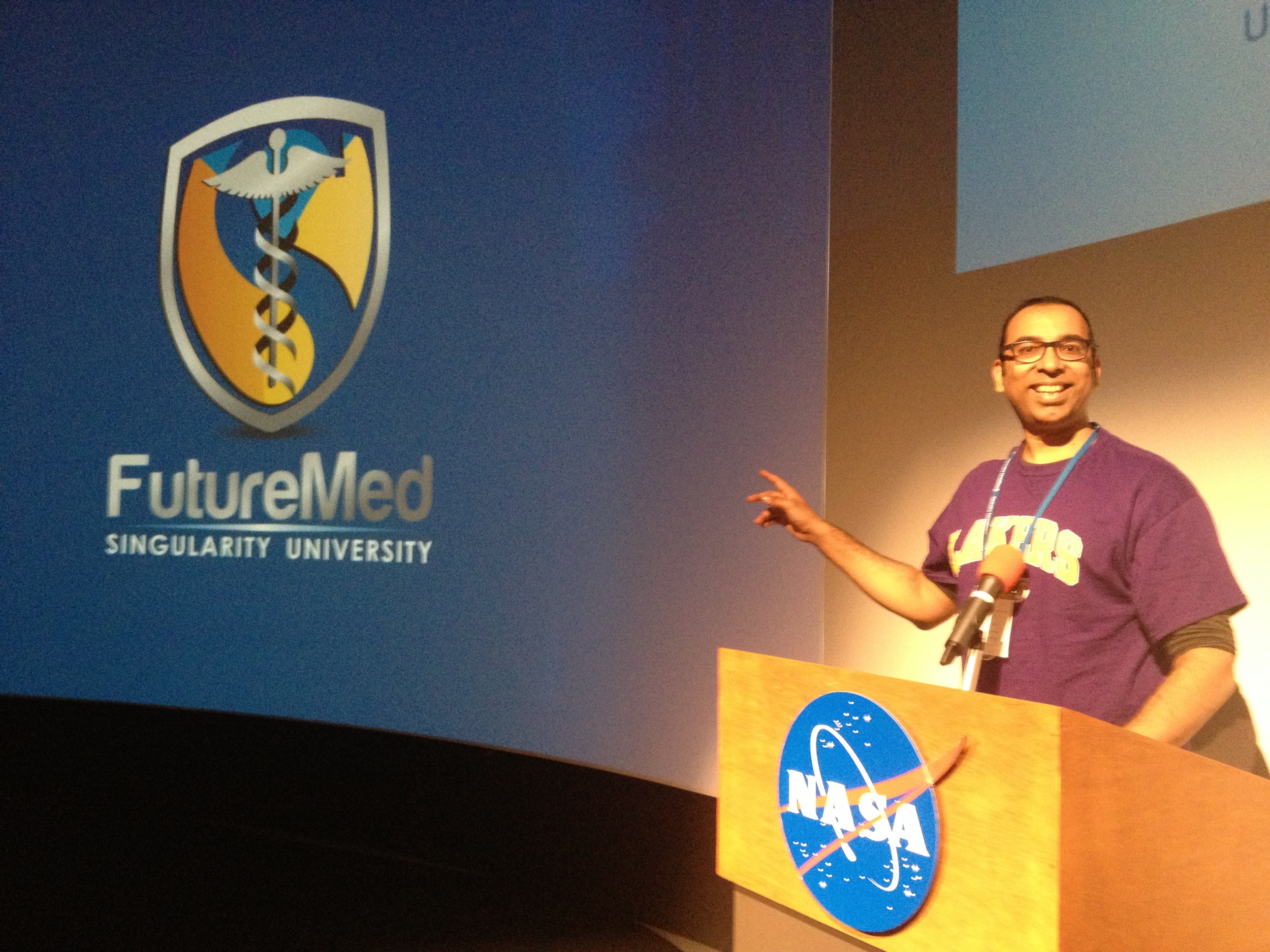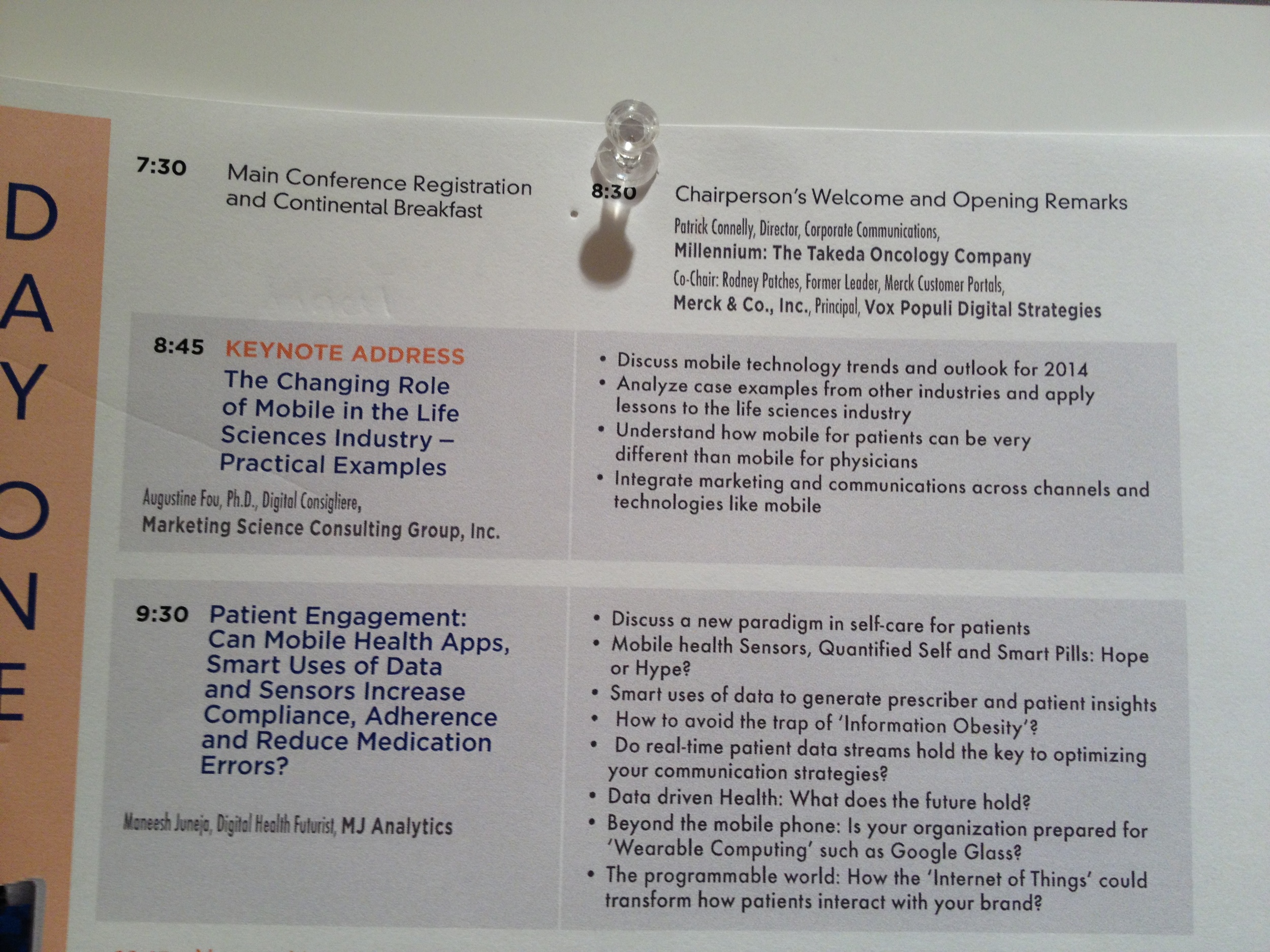8 reasons why FutureMed changed my life
In Feb 2012, I had resigned from my job at GSK but was working my notice period. I was dreaming of a yet to be undiscovered future. I'd spent almost two decades working either in the research or marketing functions of a variety of organisations. Those two functions are the parts of an organisation which are constantly thinking about the future.
I remember finding the FutureMed (FM) website one day, and I said to myself, "This looks amazing, it would be a dream come true to get admitted". I shared the link with a few colleagues who rolled their eyes, and questioned what I would get from hanging out with some 'space billionaires' in California. In the same month, I was told by someone higher up the food chain at GSK, to remove the word 'Disruptive' from the meeting on 'Disruptive Innovation' that I had scheduled, because the word 'Disruptive' was kinda scary for them. These attitudes, beliefs and cultural norms played a big role in my desire to exit one of the largest pharmaceutical companies in the world, and search for other free thinkers who weren't afraid of exploring new technology.
Friends of mine in California urged me to apply to FM, saying that my crazy & radical ideas that seemed to terrify everyone in the UK & Europe, would be not only be welcomed, but warmly encouraged at Singularity University (SU). So, I applied, and got admitted. One of only two people from the UK, I might add. I attended the 6 day program in Feb 2013, which cost me $8,500 just for the program. Over the last 8 months, people ask me all the time, was it worth it? What did you get from it? Should I attend the next FM? That's what compelled me to write this blog post, so my experience could reach a wider audience.
The 8 reasons
(Not ranked in any particular order)
#1 I'm now getting paid work as a Digital Health Futurist - I've always been more interested in the future, rather than the past or present. Since leaving my job, I've worked hard to research the latest technologies, and stay right on the edge. FM took me to a whole new level and gave me the confidence to start my own blog, deliver my first TEDx talk, and give talks and workshops on the future of Digital Health. In fact, some of my clients have told me part of the reason they first contacted me was just because I'd been to FutureMed!
#2 Opened my eyes to new possibilities - Robotic surgery, 3D bioprinting, Synthetic Biology, Regenerative Medicine, and Neuromedicine & more. I'm not necessarily an expert in these areas after FM, but it's helped me become aware of what these exponential technologies are about, where they are heading and how they may potentially change the world. The program is extremely well curated. It was the passion and energy of each of the speakers who brought these new technologies to life for me. I wish I had teachers like that when I was in school.
Virtual simulation with Da Vinci robotic surgery system
#3 Hands on experience with the most amazing technologies - I'll never forget how I got to play with the Da Vinci robotic surgery system, make a 3D printed iPhone case, or be in a group picture which was taken by a camera mounted on a UAV flying above our heads. I was fed up of reading about these technologies in blogs & articles, I wanted to see them up close with my own eyes. I don't believe I could have experienced this anywhere apart from SU.
#4 Enlarged my network in Silicon Valley - You know the saying, it's not what you know, it's WHO you know? Despite all the optimistic press releases about New York, London or Berlin being the next Silicon Valley, there is only ONE Silicon Valley. In my opinion, the Valley will continue to dominate the world in technology, at least for the next decade or two. There is just an incredible energy there. It's the only place I've ever been to where not only are people passionate about 'changing the world', but they are actually doing so too! You come into contact with so many inspiring people during the program, in addition to the awesome faculty.
#5 Fellow students have become friends - I spent 6 long days with 80 other students from 20+ countries. Some were entrepreneurs and some were employees of large organisations, it was a good mix. Despite having travelled to 44 countries, I met people from countries I've never been to, such as Brazil and Argentina. I was surrounded by people so much smarter than me, and it led to wonderful debates about the future of healthcare. I've kept in regular contact with some of the students, who have now become friends. Before I left FM, we were told that we were now part of the SU 'family', and each of us got our own SU email address! I went back in August 2013 to SU for the Alumni Reunion & the 5th birthday party of SU [I learnt that most students at SU are from the USA, but the second biggest group is from Brazil]
A talk in the main classroom by Vinod Khosla
#6 Rewired my brain - SU has a nickname, 'Sleepless University', and I found that out on Day 1. I remember speaking with the SU ambassador for Saudi Arabia (Yasser Bahjatt) at TEDActive 2012 (which itself is described by attendees as the ultimate brain spa), and he told me that SU was like TEDActive on steroids. Classes at FM started first thing in the morning, and finished in the evening, interspersed with field trips. My mind was stimulated so much, I'd often stay up till 1 or 2am, discussing the day's learnings with other students. I haven't had a learning experience like that anywhere else but it was seriously hard work. Fortunately, SU provided the tastiest and most nourishing selection of food & drinks of ANY event I've attended.
#7 Got a free reality check - Towards the end of the program, an unconference was held one evening. I shared my idea and I didn't get many positive comments. I was immediately asked about the business model and who it would benefit. At the time, it felt like folks there didn't get my idea. However, with the benefit of hindsight, I realise that the hyper-focus of people in Silicon Valley was actually a sorely needed reality check. That's helped me refocus my ideas and dreams during 2013.
#8 It's opening so many doors for me - This week, I will be attending two events which are both invitation only. The first is the very prestigious Westminster Health Forum's seminar on Health Innovation where I am actually speaking, and the second is the inaugural Internet of Things World Forum, where I'm a delegate. I'm convinced that attending FutureMed helped in securing these two opportunities.
The class of FutureMed Feb 2013 in our scrubs! I'm in the top-right hand corner with sunglasses.
A student had printed this out in the Innovation Lab
I made it to the end of the program!
However, FutureMed is not perfect
I recognise that FM is a relatively new program, but there were elements of FM in 2013, which for me, were not great. The biggest issue was the intensity of the program. There is SO much packed into each day, and so little time during the program to digest all that material. I would have preferred not just more breaks, but longer breaks to allow more time to exchange ideas with other students. Not everyone has the stamina to stay up to the early hours of the morning. I appreciate that the faculty want to help you to get value out of your time there, but there were moments when I just wanted some down-time, where I could go for a walk without having to miss a class.
You hear the term exponential technologies used a lot at SU. In fact, it's over-used at some points.
The session on Global Health was on the last day and just 2 hours long. Personally, I'm really interested in how technology can impact 7 billion lives, not just those who are in the richest nations. I hope the organisers make that section of FM much longer in the future.
SU wants to impact a billion lives. One might argue, why are they based in the USA? Surely, SU could be based in the place where those billion people are, such as rural Africa or rural India?
I've had difficulty explaining to people that despite the name, SU, is not an accredited university. Others point out that SU is sort of a cult, you get brainwashed or that it runs overpriced elitist networking events. One could argue that the people who spend 2 weeks camping outside Apple retail stores to be first in line for a new version of the iPhone are part of a cult. One could also argue that programs such as TED are also overpriced elitist networking events.
Astronaut space food. In case you're wondering, it looks better than it tastes.
Overall, the positives far outweighed the negatives for me, and the experience HAS changed my life, and continues to change my life. The next FM is being held in Nov 2013 . Alas, I won't be able to attend, and I'm curious how the experience will be in San Diego, away from the SU Campus. One of the benefits of attending FM earlier this year was that it was based at SU. Growing up in the 70s with Star Trek, and then following the progress of the Space Shuttle in the 80s, it was a really special treat to be on campus at NASA Ames Research Park. Leaving campus back into the real world, I purchased some Astronaut space food. As amazing as going into space might be for some people, I'd miss the food on Earth.
Some more pictures I took at FM are in the slideshow below.
[Note: I have no commercial ties with any of the organisations mentioned above]






